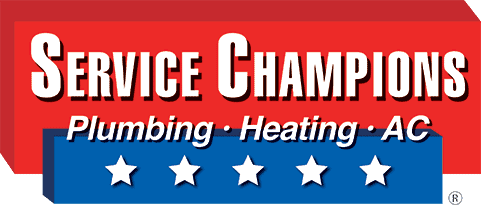Understanding Ductwork: Answering Your Most Frequently Asked Questions
What is the purpose of an air duct?
An often overlooked, yet significant element in your home’s heating and cooling system is your ducts, there would be no point in having a heating or air conditioning unit.
Air ducts are responsible for distributing warmed or cooled air throughout your home, and for keeping you comfortable. Improperly designed or failing ductwork can cost you a great deal of money in energy loss and in some instances, lead to a premature failure of your heating and cooling units. We’ve collected some of the most frequently asked air duct related questions and have posted them with our answers below.
I hear that your ducts can leak. What does this mean?
Studies have shown that leaks in your ductwork are responsible for as much as 25% of the energy loss inside your home. Air ducts require a balance in pressure to evenly distribute heated or cooled air throughout your house. Gaps, dents, or loose seals can all allow air to escape into the attic. This imbalance of air pressure can make the job of your heater or air conditioner more difficult. Your unit has to work extra hard to make your home comfortable. Anytime your heating or cooling unit has to perform overtime, you are sacrificing comfort while wasting energy and money.
How can I tell if my ducts are leaking?
While there are several ways to tell if your air ducts are leaking, a telltale sign is often your level of comfort. If you find that you’re always running your heating or cooling unit and your home never seems to reach a desired temperature, or some rooms are more comfortable than others, your ductwork might be to blame. Homeowners are usually quick to blame their air conditioner or furnace for their comfort concerns. In many instances, it’s not the unit to blame rather, the ductwork isn’t performing to it’s fullest potential. The best way to be certain is to contact a professional to help you accurately assess the condition and performance of your ductwork.
If my ducts are leaking, how can they be fixed?
Contrary to popular belief, the best way to seal or repair your ductwork is not by using duct tape. Cement mastic not only seals your ducts, but also keeps contaminants out. When done by a trained professional, your properly sealed air ducts can reduce energy costs significantly.
If my ducts are sealed, why do they also need to be insulated?
Even if you have a perfectly balanced system with no leaks, your air ducts can still lose energy. Imagine how sweltering hot the air inside your attic gets in the summertime. Now imagine how effective your bare sheet metal ductwork is if it passes through your attic without insulation. All the cold, conditioned air you are trying to cool your house with is being warmed as it passes through ducts that are not insulated. Some studies have shown that the same amount of energy lost via leaks can also be lost due to a lack of insulation.
My neighbors said they have their home zoned. What is that all about?
Zoning is a great way to save money because you are only heating or cooling the areas of your home you regularly use. In a zoned home, your thermostat is connected to a control panel, which operates a number of dampers in your ductwork system. Depending on the comfort needs in different areas of your home, dampers will open and close controlling the air that is distributed throughout your house.
Do you have questions about your ductwork that you don’t see answered here, or do you think your air ducts might be leaking? Contact us today!

